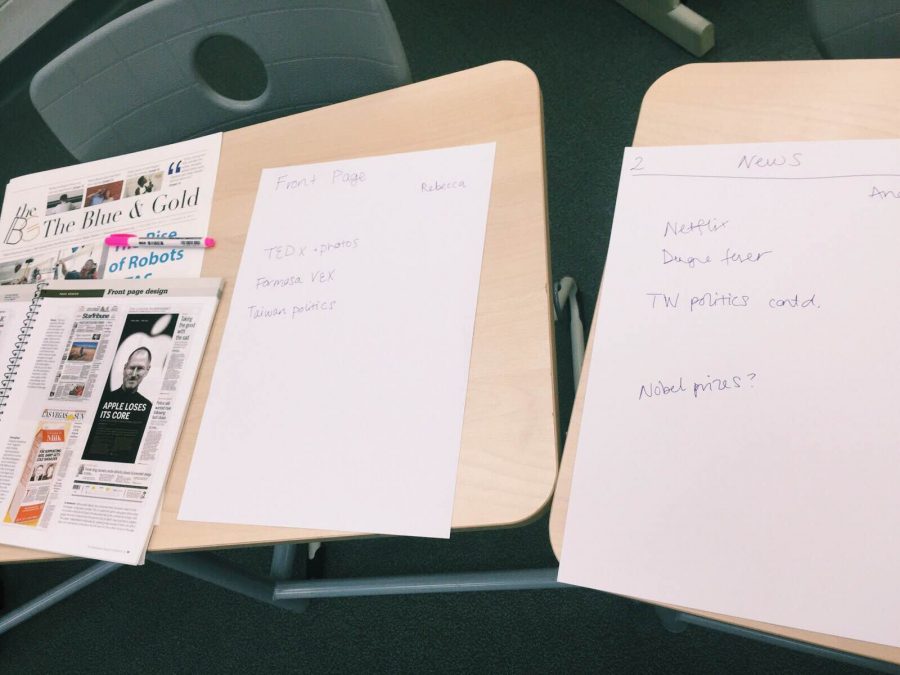Despite what people perceive as the death of journalism due to the age of internet and social media, journalism is still relevant today and more importantly, journalism needs to stay.
Student journalism is only a branch of journalism as a whole, but it is just as important as the other branches. The definition of student journalism can be defined as the practice of journalism by students within a scholastic community. What makes student journalism relevant today is what students learn from this experience of exploring journalism within a school, a community, or in a nation.
The most important skill in journalism is learning the art of crafting effective storytelling. Storytelling is an essential skill in journalism because it is often used to connect with the audience. Above all else, however, storytelling is powerful: it is a tool used to convey messages, information, experience, emotion and ideas. These messages are often able to provoke the reaction from the reader: changing of opinion, arousing of anger, or even praise. Journalism teaches students how to create effective ways of conveying a story to a wide range of audience, an important skill to learn in order for a student to connect with a much larger audience.
Student journalism also teaches the valuable life skill of interaction. In journalism, there is almost always a certain need to go out and talk to different people to gather perspectives and opinions on a certain topic. Journalism greatly promotes the necessary skill of interaction with the people and the community and from these experiences, a student is able to learn how to step out of comfort zones to interact with different kinds of people, even with strangers that they do not know. This interaction is critical to a person’s social skills outside the classroom and a valuable skill to learn in life.
Students are also involved with a variety of technology when working in journalism class. Simple technology like cameras are an integral part of journalism and students learn how to handle them and take pictures. Students also use tools on the computer to design layout pages which gives the students a chance to think of creative ways of organizing and decorating the page. Computer applications such as Adobe Photoshop and InDesign are great assets for students to use in designing pages, and mastering such applications is both helpful and useful for a student to know. Even simple technology such as iPhones and laptops are used to act as recording devices for communication with willing interviewees. Student journalism teaches students how to use different pieces of technology to aid them in writing articles.
Student journalism is also flexible in many aspects of journalism. Students are able to tackle a topic using different approaches, not just one streamline approach, and this gives students different ways to construct their argument. It is also flexible in giving students the chance to work with others or to work individually; working with others provides great chances to learn new ideas of ways to approach a topic while individual work gives students full control of how to write about a certain topic, testing their creativity in forming an argument and evidence. Journalism is a very flexible class and its flexibility allows student journalists to thrive in a learning environment where students are able to try something new every time and learn from mistakes.
So why does this matter? It matters for two reasons: the skills acquired through journalism and the importance of journalism on the world.
The skills students acquire from journalism class prepares students in the future. Oratory and social skills are crucial not just to journalism but to the real world as well. Students learn to communicate and speak with people outside of their comfort zone, and as students get more experience from speaking outside of the comfort zone, they feel more comfortable in speaking and talking in the future. Students also learn to indulge in a variety of different technological devices, granting them experience using such applications that may be useful in the future should they use the same technology again. Student journalism prepares students for a future in the profession of journalism and in the real world.
Most importantly, journalism has a worldwide impact. Just imagine this world without journalism: no news, no stories, no connections. What is the world without journalism? The answer is that the world would be absolutely mundane without journalism, and this is the impact journalism has on the world. Journalism gives people a chance to voice their opinion or perspective on a certain issue and it makes sure that the story is heard around the world. In effect, it feeds valuable information and experience that connects to the readers. Journalism is certainly not dying, it survives because the people need journalism as much as journalism needs people.
Student journalism matters in a technology-driven society because it grants students time to grow and learn the basic fundamentals of journalism. What students learn in journalism class are all essential skills for everyone to learn as they mature to adults. This is precisely why student journalism matters and why people should strive to join journalism, because simply put: student journalism offers much more than meets the eye.


![Sofia Valadao [Erin Wu/The Blue&Gold]
Erin Wu [Annabelle Hsu/The Blue&Gold]](https://blueandgoldonline.org/wp-content/uploads/2025/05/erin-sofia-pic.png)
![Dr. Simeondis, Mr. Anderson. [Annabelle Hsu/The Blue&Gold]](https://blueandgoldonline.org/wp-content/uploads/2025/05/teachers-1200x675.jpg)
![[PHOTO COURTESY OF UNCULTURED, JUNIPER AND CO.]](https://blueandgoldonline.org/wp-content/uploads/2025/05/student-businesses-1200x675.png)
![Photo of the girl's varsity badminton team [PHOTO COURTESY OF TAS ATHLETICS]](https://blueandgoldonline.org/wp-content/uploads/2025/05/BadmintonTeam-04839-1200x675.jpg)
![The Institute for Speech and Debate, now based all across the east coast of the US. [PHOTO COURTESY OF MR. WILLIAMS]
Mr. Morris' various ceramic artwork. [PHOTO COURTESY OF MR. MORRIS]](https://blueandgoldonline.org/wp-content/uploads/2025/05/Untitled-design-1-1200x918.png)
![Mr. Castro celebrates at the finish line. [PHOTO COURTESY OF MR. CASTRO]](https://blueandgoldonline.org/wp-content/uploads/2025/04/20240513_092650124_iOS-e1745300337344-1200x1116.jpeg)